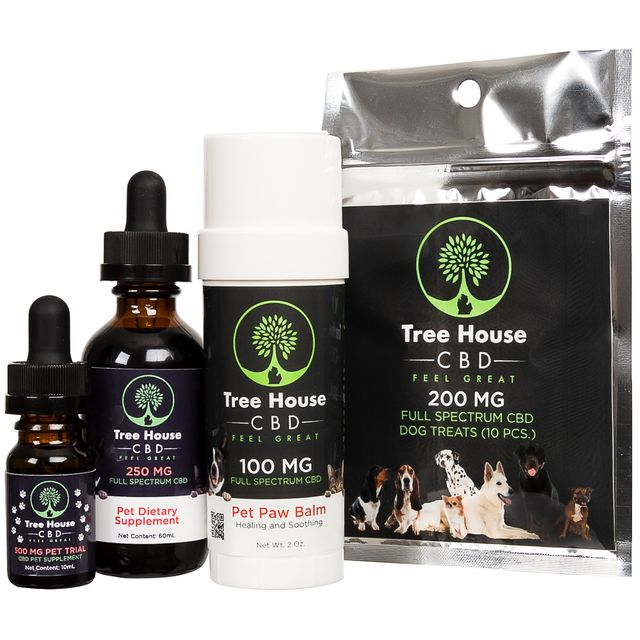Trying to figure out how much CBD oil to give your dog can feel like solving a puzzle. There's no one-size-fits-all answer because every pup is different. But don't worry, we've got you covered. In this article, we'll break down everything you need to know about dosing CBD for your furry friend. If you're looking to get started, check out Treehouse CBD for some quality options.
Key Takeaways
- Start with 2mg of CBD for every 10 pounds of your dog's weight as a general guideline.
- Adjust the dosage based on your dog's specific needs and reactions, keeping an eye on how they respond.
- Consult with your vet before starting CBD, especially if your dog has existing health conditions.
Understanding CBD Oil Dosage for Dogs
Factors Influencing Dosage
When it comes to figuring out how much CBD oil to give your dog, it's not as straightforward as you'd think. Several factors play a role in determining the right dosage. First, consider your dog's size and weight. A 10-pound Chihuahua will need a different amount than a 70-pound Labrador. Generally, starting with 2 mg of CBD for every 10 pounds of body weight is a good rule of thumb. But remember, this is just a starting point. Your dog's age, overall health, and specific health issues also matter. For example, a dog with severe arthritis might need a different dose compared to one with mild anxiety. Additionally, the concentration of the CBD product you’re using can affect the dosage. Always check the label to know how much CBD is in each dropper or treat.
Common Dosage Guidelines
Most pet owners start with a low dose and gradually increase it, watching for any side effects or improvements. For general wellness, a lower dose might suffice. But if you're tackling something like pain or inflammation, you might need to up the ante. Some experts suggest starting with a baseline of 2 mg of CBD per 10 pounds of your dog's weight. From there, you can adjust based on your dog's response. For conditions like seizures, the dosage might be higher, but always consult with a vet first.
Adjusting Dosage for Individual Needs
Every dog is unique, and what works for one might not work for another. It's all about observing your pet and tweaking the dosage as needed. If you notice your dog reacting well to a certain amount, stick with it. But if there’s no change or if your dog seems off, you might need to adjust. Keep in mind, CBD doesn’t work overnight. It can take a few weeks to see noticeable changes. So, patience is key. And if you're ever unsure, consulting with a veterinarian is always a smart move. They can help you navigate the nuances of CBD dosing, ensuring your furry friend gets the best possible care.
Choosing the Right CBD Product for Your Dog

When it comes to CBD products for dogs, there's a variety to choose from, each with its own benefits. CBD oils and tinctures are quite popular, offering flexibility in dosage and easy mixing with food. These are usually administered with a dropper, allowing pet owners to control the amount precisely. On the other hand, CBD treats are pre-dosed and convenient, making them a hassle-free option for many pet owners. They are perfect for dogs who might be picky eaters or those who enjoy a tasty treat. Both options aim to provide relief from issues like anxiety or joint pain, but the choice often depends on your dog’s preferences and lifestyle.
Pros and Cons of CBD Oils vs. Treats
Choosing between CBD oils and treats can be a bit of a dilemma. Oils offer precise dosage control and can be mixed with your dog's food or given directly. This makes them ideal for dogs who might need a specific amount of CBD that can be adjusted as needed. However, some dogs might not like the taste of oils, which can be a downside. On the flip side, CBD treats are easy to administer and are often flavored to appeal to your dog’s palate. They are convenient for on-the-go dosing but come with fixed dosages, which might not be suitable for dogs that need a customized amount. Weighing these pros and cons can help you decide which product best fits your dog's needs.
Reading Product Labels for Dosage Information
Understanding the dosage information on CBD product labels is crucial for ensuring your dog receives the appropriate amount. Most CBD oils will indicate the amount of CBD per dropper, while treats will list the CBD content per piece. This information helps you calculate the right dosage based on your dog's weight and health needs. It's also important to look for products with clear labeling and third-party testing results to ensure quality and safety. High-quality CBD products will often be labeled as full-spectrum, meaning they contain a range of cannabinoids that can enhance the effectiveness of the CBD, a phenomenon known as the "entourage effect." By carefully reading labels, you can make informed decisions about the best CBD product for your furry friend.
Administering CBD Oil to Your Dog

Methods of Administration
Giving CBD oil to your dog can be straightforward once you get the hang of it. One of the most common ways is to mix the oil with their food or favorite treat. This method makes it easy for both you and your pet, as it doesn't disrupt their usual eating habits. Alternatively, you can administer the oil directly into their mouth using a dropper. While this might sound tricky, it ensures your dog gets the full dosage. Some dogs might need a little coaxing, but with patience, they'll get used to it. If your dog is particularly fussy, you might want to try CBD-infused treats, which are both tasty and convenient.
Timing and Frequency of Dosage
Timing can play a crucial role in how effective CBD oil is for your dog. Ideally, you should give the oil at least 20 minutes before meals. This helps the body absorb it better, especially if your dog has a full belly. Start with a low dose, perhaps once a day, and observe how your dog responds. Gradually, you can increase the frequency to twice a day if needed. Keep in mind that consistency is key. It might take a few days to a week to notice any changes in your dog's behavior or health.
Tips for Successful Administration
To make the process smoother, consider making it a routine. Dogs thrive on routine, so administering CBD oil at the same time every day can help them accept it more readily. Be calm and patient, as dogs can pick up on your emotions. If you're mixing the oil with food, ensure it's something they love, like peanut butter or a bit of broth. For direct administration, reward them with a treat afterward. This positive reinforcement can make future administrations easier. Always monitor your dog for any adverse reactions and adjust the dosage as necessary. If you're ever in doubt, consulting a vet can provide additional guidance.
Monitoring and Adjusting Your Dog's CBD Dosage

Signs of Effective Dosage
Figuring out if the CBD dosage is working for your dog can be a bit of a guessing game at first. You'll want to watch for changes in their behavior or health. If your dog seems calmer, less anxious, or is moving more comfortably, you might be on the right track. Keep an eye on their daily activities and note any improvements. Sometimes, subtle changes are the best indicators that the dosage is hitting the mark.
When to Consult a Veterinarian
It's always a good idea to loop in your vet when you're giving your dog any kind of supplement, including CBD. They can give you insights into whether it's helping or if adjustments are needed. If you notice any adverse effects or if your dog’s condition doesn’t improve, it’s time to have a chat with your vet. They can help you tweak the dosage or suggest alternative treatments.
Adjusting Dosage Over Time
As your dog's needs change, so might their CBD dosage. Dogs grow, their health conditions evolve, and sometimes, what worked last month might not cut it now. Start with a low dosage and gradually increase it, keeping track of how your dog responds. If you’re using CBD treats, like the ones from Treehouse CBD, you might find that a little more or a little less is needed over time. Always be ready to adjust the dosage based on your observations and any recommendations from your vet. Remember, finding the right balance is key to ensuring your dog gets the full benefits of CBD.
When it comes to giving your dog CBD, it's important to keep an eye on how they respond. Start with a small amount and watch for any changes in their behavior or health. If you notice anything unusual, adjust the dosage accordingly. For more tips and to explore our range of CBD products for pets, visit our website today!
Conclusion
In wrapping up, finding the right CBD dosage for your dog might seem like a bit of a puzzle at first, but with some patience and observation, you'll get there. Start small, keep an eye on how your furry friend reacts, and adjust as needed. Remember, every dog is different, so what works for one might not work for another. And don't forget to chat with your vet before diving in, just to be on the safe side. If you're looking for quality CBD products, Treehouse CBD has got you covered with options that cater to your pet's needs. Here's to happier, healthier days for your pup!
Frequently Asked Questions
How can I determine the right amount of CBD oil for my dog?
To figure out the right CBD oil dose for your dog, start with 2 mg for every 10 pounds of your dog's weight. It's a good idea to begin with this amount and see how your dog reacts. You can then adjust the dose as needed to find what works best for your furry friend.
What should I do if my dog doesn't seem to benefit from CBD oil?
If CBD oil doesn't seem to be helping your dog, you might need to adjust the dosage. Try increasing the amount slowly and watch how your dog responds. If there's still no improvement, it could be helpful to talk to your veterinarian for advice.
Is it safe to give my dog CBD oil every day?
Yes, it's generally safe to give your dog CBD oil daily. Consistency is key to seeing results, so giving it regularly can help. However, it's always a good idea to consult with your vet before starting any new supplement, especially if your dog has health issues.


